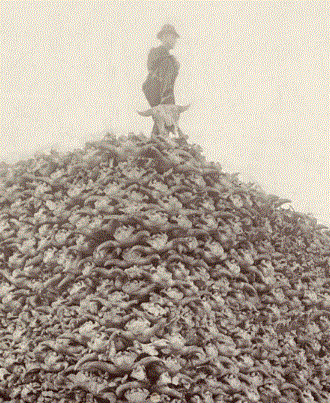BLACKFEET ECO KNOWLEDGE
Our Story
Ancient Knowledge Systems
The Blackfeet people have a long-standing history dating back to at least 12,800 years ago, as evidenced by recent research and archaeological digs (http://www.u.arizona.edu/~mzedeno/research.html). Our traditional knowledge systems have been passed down through the centuries and have sustained us through numerous obstacles such as disease, warfare, and assimilation. Despite facing centuries of disarray and victimization, the Blackfeet people have managed to preserve our sacred knowledge, allowing us to be resilient and carry out the role as the original people given knowledge to save the world (Brown, 2019).

Historical Trauma

.jpg)
Centuries of Indian policies have been enacted to deal with Indigenous people in America, with many directly aimed at breaking down the systems of the Nitsitapii (Blackfeet) (Belgarde, 2020). Boarding schools were established from 1800 to 1900, stripping away the self-identity of Indigenous cultures and creating ripple effects of generational trauma cycles that continue to impact Indigenous people's positive self-identity (Brave Heart & DeBruyn, 1998). Additionally, many policies began the generational gap of cultural loss, making it illegal to practice Indigenous culture or ceremonies until 1968 (Office of the Historian, n.d.). The loss of language was also a result of these policies, with Nitsitapii people today often unable to speak their birthright language due to the ban during the boarding school era (Lomawaima, 1994). Finally, historical trauma has also impacted the environment, with policies such as the Dawes Act contributing to the erosion of original territory and the loss of the traditional ecosystem, including the buffalo (Malone, 2019).


Restoration and Revitalization
Reviving the processes and systems of the Nitstitapii is crucial to fully reversing the trauma endured by their people, culture, language, and environment (Brave Heart & DeBruyn, 1998). Despite statistics indicating ongoing challenges, the Blackfoot confederacy communities still have elders, knowledge holders, practitioners, language speakers, and resources to assist in the work of reconnecting and restoration (Walter, 2020). Blackfeet Eco Knowledge (BEK) has developed projects aimed at reconnecting people with their culture and reversing the impact of historical trauma to restore their bio-cultural diversity.